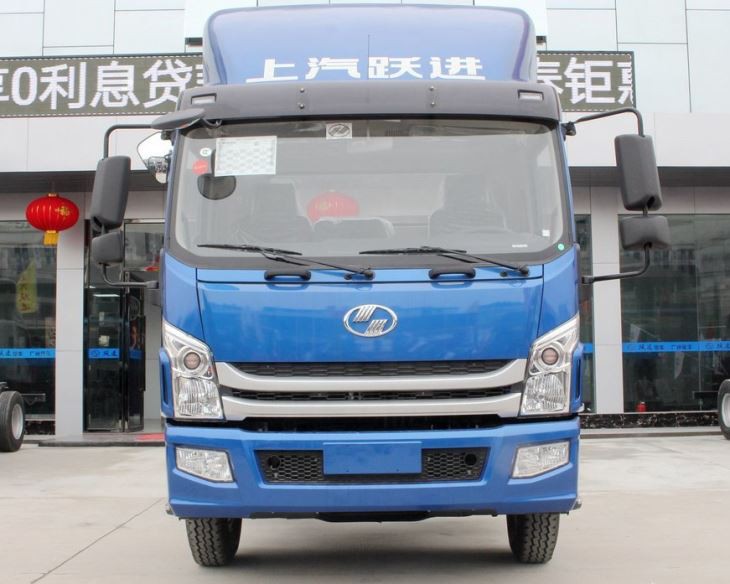Introduction
Lorries play a critical role in the transportation industry, serving as vital workhorses for moving goods across urban and rural landscapes. Among them, the 12-wheeler lorry stands out due to its impressive payload capacity and versatility. This article is dedicated to exploring everything you need to know about 12-wheeler lorries, including their specifications, advantages, applications, and maintenance tips. Whether you’re a logistics manager, a truck enthusiast, or someone simply curious about heavy vehicles, this guide will provide comprehensive insights.
Understanding the 12-Wheeler Lorry
What is a 12-Wheeler Lorry?
A 12-wheeler lorry features a robust structure built for heavy-duty transportation. Typically, these lorries have a dual rear axle configuration that divides the weight of the cargo effectively, allowing for a higher load capacity. They are commonly used in various sectors, including construction, manufacturing, and logistics.
Specifications of a 12-Wheeler Lorry
The specifications of 12-wheeler lorries can vary by manufacturer, but common features include:
| Specification | Typical Value |
|---|---|
| Payload Capacity | 10-12 tons |
| Length | 6-8 meters |
| Width | 2.5 meters |
| Height | 3.5 meters |
| Engine Power | 150-400 HP |
Advantages of Using a 12-Wheeler Lorry
High Payload Capacity
The most significant advantage of a 12-wheeler lorry is its high payload capacity. With the ability to carry large loads, these lorries are ideal for businesses requiring transportation of bulk goods.
Stability and Durability
Equipped with dual rear axles, a 12-wheeler lorry offers enhanced stability and better weight distribution. This makes it less prone to tipping, ensuring that it can handle rough terrains easily.
Versatility in Applications
These lorries can be used in various capacities, such as transporting construction materials, large machinery, and consumer products. Their versatility makes them a favorite in commercial and industrial sectors.
Common Uses of 12-Wheeler Lorries
Construction Industry
In the construction sector, 12-wheeler lorries are essential for transporting heavy materials like concrete, steel beams, and equipment. Their robust construction allows them to withstand harsh working conditions.
Logistics and Freight Transport
These lorries are frequently used in logistics for transporting packaged goods. Their size allows for a significant amount of cargo, improving efficiency in delivery times.
Agricultural Use
Farmers utilize 12-wheeler lorries to transport harvests to markets and supplies to farms, making them a vital part of the agricultural supply chain.
Choosing the Right 12-Wheeler Lorry
Assess Your Needs
Before purchasing or renting a 12-wheeler lorry, it’s crucial to assess your requirements. Consider the following:
- What is the type of cargo you will be transporting?
- How frequently will you use the lorry?
- What is the distance of your typical routes?
Evaluate Fuel Efficiency
Fuel costs can significantly affect your budget when operating a 12-wheeler lorry. Look for vehicles with efficient engines that consume less fuel while providing the required power.
Check for Safety Features
Safety should be a top priority. Ensure that the lorry is equipped with essential safety features such as anti-lock brakes, traction control, and lane-keeping assistance.
Factors to Consider When Buying
• Warranty and Maintenance Services: Check if the manufacturer offers a solid warranty and if maintenance services are readily available in your area.
• Cost of Ownership: Calculate not only the purchase price but also the total cost of ownership, including insurance, taxes, and maintenance.
Maintenance Tips for 12-Wheeler Lorries
Regular Inspections
Frequent checks can help identify issues before they become significant problems. Check tires, brakes, and suspension systems regularly to ensure optimal performance.
Engine and Fluid Check
Regularly inspect the engine and fluids, including oil, coolant, and brake fluid. Maintaining these can prolong the engine’s lifespan and enhance fuel efficiency.
Cleaning and Upkeep
Moreover, keep the lorry clean from debris and grime, especially underneath, where rust can develop. Regular washing can prevent long-term damage and maintain its appearance.
Through the Eyes of the Driver: Real Experiences
Challenges Faced
Driving a 12-wheeler lorry presents unique challenges, such as navigating tight spaces and managing weight distribution. Drivers often share stories of learning how to maneuver in urban settings effectively.
Success Stories
Many drivers report that operating a 12-wheeler has enabled them to secure better jobs and higher wages due to the vehicle’s versatility and capacity for heavy hauling.
The Future of 12-Wheeler Lorries
Technological Advancements
With the advancement of technology, 12-wheeler lorries are equipped with smart systems that enhance performance and safety. Innovations like telematics, automatic braking systems, and adaptive cruise control are becoming standard.
Environmental Considerations
As the world moves towards sustainability, manufacturers are developing greener models that comply with eco-friendly regulations. This shift not only benefits the environment but also reduces operational costs in the long run.
FAQ Section
What is the average cost of a new 12-wheeler lorry?
The average cost of a new 12-wheeler lorry typically ranges between $50,000 to $120,000, depending on the specifications and manufacturer.
How much weight can a 12-wheeler lorry carry?
12-wheeler lorries can carry between 10 to 12 tons, making them suitable for transporting large and heavy loads.
Are 12-wheeler lorries fuel-efficient?
Fuel efficiency varies by model and usage, but modern 12-wheeler lorries are designed to be more fuel-efficient due to advanced engine technologies.
What kind of license do I need to drive a 12-wheeler lorry?
In most regions, a Commercial Driver’s License (CDL) is required to operate a 12-wheeler lorry legally.
How often should I service my 12-wheeler lorry?
Regular servicing should be done every 6 months or every 10,000 to 15,000 kilometers, whichever comes first, to ensure optimal performance.
Can I customize a 12-wheeler lorry?
Yes, many manufacturers offer options for customizing their lorries to meet specific business needs, including cargo compartments and additional safety features.





